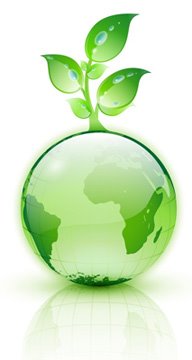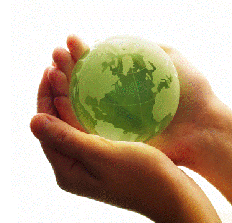The first thing I will have trouble with will be unplugging my electronics to save energy. I find this to be very difficult for me because I’m used to just using the electronics as I want and whenever I want so I don’t want to be plugging them every time I want to use them.
Other thing difficult for me to change would be to turn off the water while I brush my teeth. I let the water run every time I brush my teeth I do not even know why but I do. I know it is going to be difficult because I’ve tried to change this habit before and did not succeed in it.
I think recycling is another thing that I find difficult to do. I am not used to recycling because I just take out my garbage and the house owner is in charge of separating it. But I think it would be great if I give him a little help by trying to recycle but is just that I’m so used to not doing it that I think it is going to be so difficult.
Other thing I’m used to is using the normal light bulbs. I’ve tried in the past to change this but didn’t succeed also. I’ve told my mother to use the other light bulbs but we keep on buying the normal ones and I think we won’t change this.
Also, using the sunlight during the day is difficult for me because I’m used to having all my lights on during the whole day and even though I open my curtains and have the sun light entering my house I still have the lights on.
THis are the five hardest things I find to do to help the environment.

Wednesday, May 28, 2008
Saturday, May 17, 2008
Peer Review
"The Guarani: Suffering at the Hands of Change"
Does the draft have a main point (thesis)?
I think that the main point in her paper is the following:
“the process has taken with it various species of plants and fauna, and the virtually unnoticed standards of living of several indigenous groups worldwide.”
Find an instance of what you consider an interesting or useful example, image, chart, etc. and explain why. ( Living in the rainforests, the Guarani hold their environment in incredibly high regard. For them, the land is above all, it can do no evil and will supply them with everything they need on a day to day basis. Their culture and religious beliefs have been founded on these principles for centuries. Although some tribes now practice Catholicism, those that follow the path of their ancestors continue to practice animism. This asserts that nature itself has a soul; that the sky, the trees, the animals, and even stones have a soul. This belief branches off into their healing practices and shamanistic leadership systems. Shamans, who are the religious leaders in the communities, use the plant species they have at their disposal in order to create remedies for a wide range of ills, and provide a connection between the people and the Gods.
Find a place in the paper that you consider confusing or boring and explain why. (You should cut and paste the passage or at least say in what page and paragraph it is).
Jesuit missions made the journey in search of new followers, and when they learned of the atrocities being done to the slaves, they offered the Guarani conversion as a form of escape. Thousands of Guarani flocked to the missions; they learned the Catholic prayers, but continued their ways in secret. Finally, in the beginning of the eighteenth century several European countries waged war in the region wanted to stake their claim on the areas now known as Paraguay, Uruguay, and Argentina. Many Guarani stayed to fight and die, alongside their priests, while others saw their chance and fled back into the forest. Many tribes reverted to the old way of life; those who had difficulty doing so chose to take the occasional job as a gardener or maintenance worker for a village farmer. But deep in the forest they stayed, looking expectantly into a bright future, and waiting.
Does the draft acknowledge where information comes from IN THE BODY OF THE TEXT? (the bibliography does not count for this question)
Yes, she uses sites at the end of the paragraphs. Though I think it will be better to incorporate quotes in the middle or through out the paragraphs and then explain them.
Would you recommend that the writer get some help with grammar before turning in the last draft? Why? Why not?
I think that her writing is very good. I think she doesn’t need revisions but just add more information.
**Christina hasn't published her research paper.
Does the draft have a main point (thesis)?
I think that the main point in her paper is the following:
“the process has taken with it various species of plants and fauna, and the virtually unnoticed standards of living of several indigenous groups worldwide.”
Find an instance of what you consider an interesting or useful example, image, chart, etc. and explain why. ( Living in the rainforests, the Guarani hold their environment in incredibly high regard. For them, the land is above all, it can do no evil and will supply them with everything they need on a day to day basis. Their culture and religious beliefs have been founded on these principles for centuries. Although some tribes now practice Catholicism, those that follow the path of their ancestors continue to practice animism. This asserts that nature itself has a soul; that the sky, the trees, the animals, and even stones have a soul. This belief branches off into their healing practices and shamanistic leadership systems. Shamans, who are the religious leaders in the communities, use the plant species they have at their disposal in order to create remedies for a wide range of ills, and provide a connection between the people and the Gods.
Find a place in the paper that you consider confusing or boring and explain why. (You should cut and paste the passage or at least say in what page and paragraph it is).
Jesuit missions made the journey in search of new followers, and when they learned of the atrocities being done to the slaves, they offered the Guarani conversion as a form of escape. Thousands of Guarani flocked to the missions; they learned the Catholic prayers, but continued their ways in secret. Finally, in the beginning of the eighteenth century several European countries waged war in the region wanted to stake their claim on the areas now known as Paraguay, Uruguay, and Argentina. Many Guarani stayed to fight and die, alongside their priests, while others saw their chance and fled back into the forest. Many tribes reverted to the old way of life; those who had difficulty doing so chose to take the occasional job as a gardener or maintenance worker for a village farmer. But deep in the forest they stayed, looking expectantly into a bright future, and waiting.
Does the draft acknowledge where information comes from IN THE BODY OF THE TEXT? (the bibliography does not count for this question)
Yes, she uses sites at the end of the paragraphs. Though I think it will be better to incorporate quotes in the middle or through out the paragraphs and then explain them.
Would you recommend that the writer get some help with grammar before turning in the last draft? Why? Why not?
I think that her writing is very good. I think she doesn’t need revisions but just add more information.
**Christina hasn't published her research paper.
Sunday, May 11, 2008
E-waste from the U.S
For my paper I want to write about e-waste from the U.S. At first I couldn't find the way to narrow it down, but after reading the comment of Prof. X I found it easier. I will talk about the U.S e-waste that goes to China. I'm not sure on how to write about this. It is a big topic that a lot needs to be covered so I don't know what info to use.
I also have problems with section two. I can't find a blog where it talks about the U.S ewaste in china. I might have to look up for a video and make sort of an interview. I'm really fustrated witht his section because I'm not sure on what to write. I just hope I get it right at the end of all.
I personally are very interested in the topic I'm writing in. I think it is an issue that everyone needs to be aware of. Unfortunately not many people know how to deal with it. So I hope that a lot of people read my paper and find a way on how to help solving the problem with e-waste.
I also have problems with section two. I can't find a blog where it talks about the U.S ewaste in china. I might have to look up for a video and make sort of an interview. I'm really fustrated witht his section because I'm not sure on what to write. I just hope I get it right at the end of all.
I personally are very interested in the topic I'm writing in. I think it is an issue that everyone needs to be aware of. Unfortunately not many people know how to deal with it. So I hope that a lot of people read my paper and find a way on how to help solving the problem with e-waste.
Sunday, May 4, 2008
blog 8
Topic: My research paper will cover today’s period. I will talk about e-waste in the Common Era. I think that technology has been emerging more and more in the present therefore e-waste is a major issue today. I will specifically talk about the e-waste that the U.S produces. I will talk about the parts where all this waste lands in. Places such as India, China, Africa or Pakistan, and how it affects the people living in these places and their atmosphere.
Purpose: I’m writing on this topic because I think that it concerns a lot of people, especially those living in poor nations where all the e-waste goes to. I’m also writing because not many of us who live in the U.S know how to recycle our electronic waste.
The audience I hope to reach is mainly regular people. I think that ordinary people are not well informed about this topic. We are the ones who use computers, cell phones, and other electronics, but we don not know how much damage we are doing to the world by not recycling correctly. Also, I hope to reach the government in the U.S because wee need to stop allowing certain chemicals that are used in our electronics. I hope they realize the danger we exposure to the people living in poor nations.
The types of sources I have are articles published in newspapers in the internet. Also, I have a report from the United Nations where they talk about the e-waste in nations such as India, Pakistan and China. I have also read some blogs where they talk about this issue in great detail. I have pictures, but I need to choose the ones that are the best for what I’m trying to focus on. I have to look up for interviews and other kinds of sources such as books.
The types of sources I’m looking for are interviews and books. I think that an interview would be really helpful in writing my research. It would add a more vivid image of how e-waste is affecting people in poor nations. Also books are very helpful. I haven’t looked for books but I think it’s a helpful source to look in for information.
The thesis I will focus on is on “who are other nations being affected by the e-waste of the U.S” I think that this thesis tells what I will write about though I might change it later on depending on the information I get.
Purpose: I’m writing on this topic because I think that it concerns a lot of people, especially those living in poor nations where all the e-waste goes to. I’m also writing because not many of us who live in the U.S know how to recycle our electronic waste.
The audience I hope to reach is mainly regular people. I think that ordinary people are not well informed about this topic. We are the ones who use computers, cell phones, and other electronics, but we don not know how much damage we are doing to the world by not recycling correctly. Also, I hope to reach the government in the U.S because wee need to stop allowing certain chemicals that are used in our electronics. I hope they realize the danger we exposure to the people living in poor nations.
The types of sources I have are articles published in newspapers in the internet. Also, I have a report from the United Nations where they talk about the e-waste in nations such as India, Pakistan and China. I have also read some blogs where they talk about this issue in great detail. I have pictures, but I need to choose the ones that are the best for what I’m trying to focus on. I have to look up for interviews and other kinds of sources such as books.
The types of sources I’m looking for are interviews and books. I think that an interview would be really helpful in writing my research. It would add a more vivid image of how e-waste is affecting people in poor nations. Also books are very helpful. I haven’t looked for books but I think it’s a helpful source to look in for information.
The thesis I will focus on is on “who are other nations being affected by the e-waste of the U.S” I think that this thesis tells what I will write about though I might change it later on depending on the information I get.
Subscribe to:
Posts (Atom)


